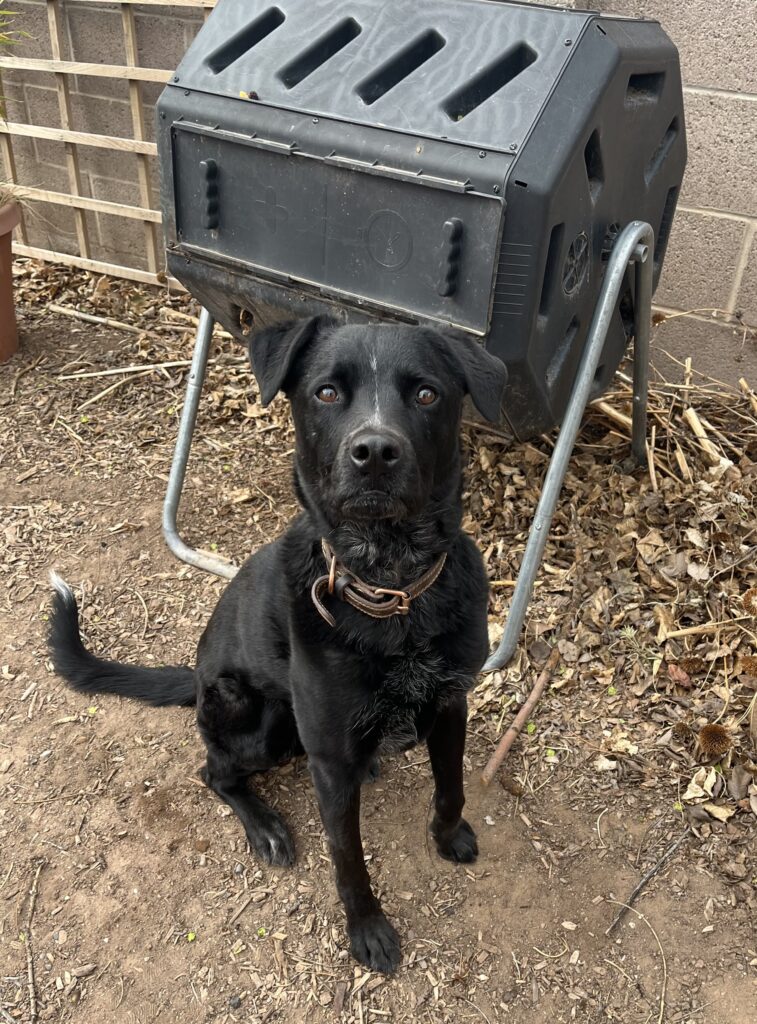We can do better (Plus: an assignment for everyone)

During this week’s episode of New Mexico in Focus, I’m hosting a conversation about food justice with panelists from the Southwest Organizing Project, Three Sisters Kitchen, and the City of Albuquerque.
While grocery shopping a few weeks ago, I stared down a container of blueberries I couldn’t afford to buy. As I looked across the produce section, I saw strawberries, raspberries, blackberries, oranges, limes, lemons, and even apples that didn’t fit within my budget. I wasn’t even at a super fancy grocery store, and these were conventionally grown fruits.
I nosed around, asking what happens to the produce no one can afford to buy.
“It’s thrown away,” one of the store employees told me, quietly and nervously.
And with that, I decided to channel my disappointment and rage into something productive, like a conversation with smart, thoughtful people about how to get to the root of the problems and get better at solving them.
Just in Albuquerque, more than 112,600 tons of food are wasted each year. And according to this handout from the city, 40 percent of all food in the United States is wasted. Eight percent of global greenhouse gas emissions come from food waste.
Across the world, water supplies are increasingly uncertain, large-scale agricultural systems contribute to climate change, small-scale farmers can barely scrape a living together, croplands are overfertilized, companies profit from the sale of herbicides and pesticides and fungicides meant to poison “pest” species, and millions of people lack food. Meanwhile, we throw food into landfills. A lot of food.
So, yep, this week we’re going to talk about why that happens, who benefits, and how to envision and act on food justice. (Also, that’s Wren the dog showing off the compost tumbler we have at home.)
For all the seemingly intractable problems we face in the world, this one has real solutions and tangible benefits — all the way from our households to our farm fields and beyond. We can do better. And I’m excited to learn how.
And now for your assignment! When you’re grocery shopping this week, ask around to learn what happens to the produce and other food they don’t sell. Then, please — please! — drop me a note at lpaskus@nmpbs.org ahead of Thursday morning’s taping. I’d love to know what you find out!
Meanwhile, set aside a chunk of time to read a new article in the Colorado Environmental Law Journal, “Last Call: The Limitations of New Mexico’s Existing Water Management Framework in the Face of Reduced Colorado River Water Deliveries,” by Katherine H. Tara and John Fleck.
The piece provides useful (and easy to read) background and context — and prescriptions for the state of New Mexico as Colorado River water deliveries inevitably decline.
Consider the conclusion:
“The world’s major greenhouse gas producers are not likely to reduce emissions in time to prevent significant global temperature increases. This warming will continue to impact water availability in the Colorado River Basin, particularly in those areas that are predicted to warm by 2.5 to 5.5 degrees Fahrenheit by 2070. There is no scientific evidence indicating that the aridification in New Mexico will improve, which has potentially serious consequences for Colorado River deliveries across the northern part of the state. While these risks are troubling, New Mexico will be in a much stronger position if the state acknowledges the weaknesses of its existing Colorado River water allocation framework, as well as how those weaknesses will impact vulnerable communities, like tribes.”
In other words: We know there are problems. We know they’ll become more severe. Let’s get to work right now.
Then, once you’re done reading that article, you can plan to bring all your best ideas to three open house events on water planning hosted by the New Mexico Interstate Stream Commission. These are happening across the state through August. The next three are on April 22 in Estancia, April 23 in Clovis, and April 24 in Mora. Find out more on the ISC’s website.
And just a few things to round out this week’s newsletter:
• I’ve mentioned the documentary we’ve been working on, which will air on NMPBS on Thursday April 25 at 7 p.m. If you’d like sneak peeks, keep an eye on our Instagram account and YouTube channel.
• A couple of weeks ago, I joined up with Dr. Carla Marie Manly on her podcast, Imperfect Love, to talk about climate anxiety, community change, and hope. I think some of you will appreciate listening, which you can do on Apple or Spotify.
•Applications close tomorrow for the Our Land Teaching Fellowship, which launches with a training session in Albuquerque on June 22. For more information and to apply, visit our education page!
• And lastly, we’ve got a new website! I love what NMPBS’s Myah Wilmarth has built for us! Check it out: nmpbs.org/ourland/
P.S. If a friend forwarded you this message, sign up here to receive the newsletter yourself. You can also read recent newsletters online. And if you miss us throughout the week, follow Our Land on Instagram.


